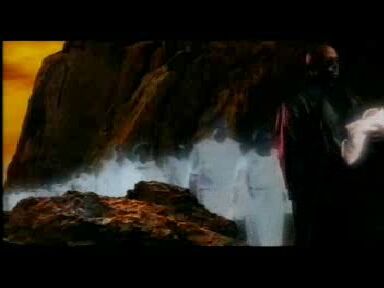See You At The Crossroads: OFAC Says Goodbye to an Old Friend

Executive Order 13348 had a good run. But when the United Nations rescinded Security Council Resolution 1521 earlier this year, we knew that time was running out for the United States’ sanctions program targeting certain persons related to the former regime of Charles Taylor. Yesterday, President Obama made it official and laid the Liberian sanctions program to rest with an executive order terminating the national emergency with respect to the actions and policies of former Liberian President Charles Taylor. And with that action, Executive Order 13348 was revoked, and the United States Department of the Treasury’s Office of Foreign Assets Control (“OFAC”) had to say goodbye to a program that had brought them so many memories over the years.
The Liberian sanctions program, formally known as The Former Liberian Regime of Charles Taylor Sanctions, went into effect on July 22, 2004 and was intended to target Charles Taylor and his immediate family members; senior officials, allies, and associates of Charles Taylor’s former regime; those involved in materially assisting the depletion of Liberian resources or the secreting of Liberian funds and property; and any person owned or controlled, or acting on behalf of any person designated pursuant to E.O. 13348. These sanctions were issued in response to those actions of former Liberian President Charles Taylor that led to the unlawful depletion of Liberian resources and their removal from Liberia, that undermined Liberia’s transition to democracy and the orderly development of its institutions and resources, that led to the failure to implement the Comprehensive Peace Agreement signed on August 18, 2003 and related ceasefire, and that furthered the links between the illicit trade in round logs and timber products to the proliferation in illegal arms which perpetuated the Liberian conflict and fueled other conflicts throughout West Africa. In issuing yesterday’s executive order, President Obama found that the success of the last two Liberian elections, Charles Taylor’s conviction and imprisonment, and the diminished ability of those formerly tied to Charles Taylor to undermine Liberia’s progress all warranted the termination of the national emergency with respect to Liberia, as well as the revocation of E.O. 13348.
While the Liberian sanctions program never received the same attention as the Iran, Russia, or Cuba sanctions, it was notable for a number of reasons. First, there were a number of parties designated under that program who held U.S. accounts and assets. When it comes to matters involving removal from OFAC’s List of Specially Designated Nationals and Blocked Persons (“SDN”), the issue of whether the targeted party has U.S. based assets is of particular importance because the existence of such blocked assets creates additional due process and constitutional rights for those designated parties with an interest in such assets; as opposed to SDNs who are merely foreign nationals without any interest in assets under U.S. jurisdiction. For those SDNs who had U.S. assets, but who are now delisted by operation of law as a result of yesterday’s revocation of E.O. 13348, the rumor is that OFAC will be issuing letters to them or their counsel on next steps to be taken in regards to those formerly blocked assets.
The Liberian sanctions program was also notable due to the volume of litigation it inspired. Of particular significance were the criminal cases brought against two of E.O. 13348 most famous targets: Victor Bout and Richard Chichakli. Further, Mr. Chichakli, a U.S. citizen, who prior to his arrest chronicled his decade long battle with OFAC on his blog (which has been taken down), has filed eight separate lawsuits, and three appeals, that either directly challenge his designation under E.O. 13348, or otherwise challenge the actions of the Government for treatment he has suffered as a result of his designation. Much of that litigation is still pending. While the U.S. Government will likely seek to dismiss certain claims that have been brought against them now that Mr. Chichakli has been delisted, there are certain claims that are not directly related to his designation the merits of which will likely be heard and ruled upon.
The Liberian sanctions program, therefore, has taught us a valuable lesson: the designation of U.S. persons pursuant to sanctions authorities, and prosecution of a party for violating sanctions authorities, may lead to numerous legal challenges that can tie up agency resources, and have the potential to lead to jurisprudence which is unfavorable to the agency. Although, I doubt OFAC will shy away from designating U.S. persons when they feel the designation is warranted and necessary, I do believe when designating U.S. persons they will exercise a heightened level of caution to make sure that they are administering the designation in such away to avoid legal challenges down the road. Such is the legacy of the Liberian sanctions program.
As a sanctions lawyer who represented, and successfully removed, several parties designated pursuant to E.O. 13348 it was a big part of my life for the past several years. However, E.O. 13348’s time had come, and though its so hard to say goodbye, we bid it and the Liberia sanctions farewell.
The author of this blog is Erich Ferrari, an attorney specializing in OFAC matters. If you have any questions please contact him at 202-280-6370 or ferrari@ferrariassociatespc.com


